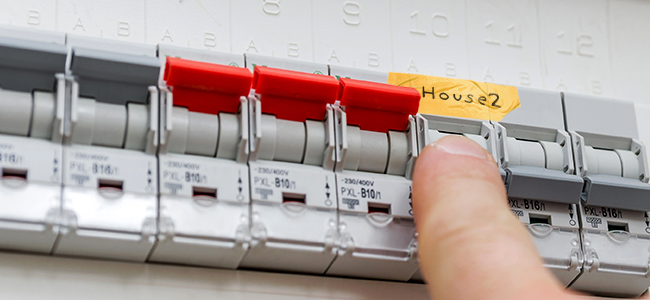“A body corporate’s lot is not an easy one.” (With apologies to Gilbert and Sullivan)
One of a body corporate’s core functions is to collect current and outstanding levies. When a section owner becomes uncooperative, recovery can turn into a difficult, costly and lengthy process. Good news for trustees is that it just became a little easier after a recent High Court ruling which authorised a body corporate to cut off an owner’s electricity for failure to pay his consumption charges.
“The pandemic made me do it”
An owner of an apartment in an 86-unit sectional title scheme in Sandton fell into arrears in 2021. Two years later he owed a total of R107,940 … R16,610 of which was for unpaid electricity charges.
The body corporate sued him, asking the High Court not only for a monetary judgment but also for authority to cut off his electricity supply pending payment. It pointed out that the scheme pays Eskom for its electricity and then invoices unit owners for consumption recorded on their individual meters. That put all owners at risk of being cut off by Eskom if the body corporate was unable to pay its monthly account.
The owner admitted owing the amount claimed, which he said had resulted from a loss of income as a result of the Covid-19 pandemic. He offered to pay off the arrears in instalments of R8,000 p.m. and opposed the application to cut his power on constitutional grounds.
The Court authorised the body corporate to disconnect the owner’s electricity supply until he pays the portion of the arrears relating to electricity.
How the body corporate won – follow this recipe
As the Court put it: “There is tension between competing interests in this matter: the right of the Body Corporate to be reimbursed for payments made on behalf of the unit owners and the right of the owner to be supplied electricity.”
In other words, it wasn’t a foregone conclusion that the body corporate would automatically succeed here. So don’t just assume that you now have carte blanche to force payment of arrears by cutting off electricity.
Rather follow the recipe for success that worked for this body corporate:
- Don’t act arbitrarily: The owner relied partially on constitutional protection against “arbitrary deprivation of property”, but the body corporate was able to counter that it wasn’t acting arbitrarily at all. On the contrary, it was asking the Court for permission to disconnect. Arbitrary disconnection not authorised by a court order will in any event put you in the wrong and risk the owner obtaining a “spoliation” order. That would force you to switch the power back on immediately without any investigation into the rights and wrongs of the matter.
- Give proper notice of disconnection: The body corporate had ensured procedural fairness by giving the owner proper notice which spelt out the consequences of non-payment of his levies (including application for a court order to disconnect electricity).
- Make sure all your resolutions are in order: The Court analysed the various resolutions passed by the body corporate in respect of imposition of levies and collection of arrears before confirming that they were enforceable against the owner.
- Proving “prior agreement”: The owner argued that he had never agreed to disconnection on non-payment, but the Court held that there was indeed a tacit (inferred) agreement by him to repay the body corporate for its payments to Eskom, and that he was bound to the scheme’s rules and regulations regarding enforcement. You need to have all your paperwork in order to achieve the same result.
- Balancing competing interests: You will need to persuade the court that your scheme’s interests trump those of the owner. In this case, the scheme’s financial stability was put at risk, exposing all owners to the risk of disconnection – while the defaulting owner continued to benefit from electricity at the expense of the other owners.
An important caveat
Although the body corporate had applied for an order to disconnect electricity until the full judgment amount of almost R108k had been paid in full (i.e. including the levy portion of R91k), the Court limited its disconnection authorisation to recovery of only the arrears for electricity consumption (plus interest). It gave no reasons in its judgment for not linking reconnection to payment of the full R108k – but its comment that the electricity non-payment was the most prejudicial to the scheme suggests that it will always be safest to assume that your rights to disconnect electricity may be similarly limited.
Whether you’re a body corporate or a sectional title owner, navigating situations like this requires carefully ticking all the legal boxes. You know who to call!
Disclaimer: The information provided herein should not be used or relied on as professional advice. No liability can be accepted for any errors or omissions nor for any loss or damage arising from reliance upon any information herein. Always contact us for specific and detailed advice.
© LawDotNews

